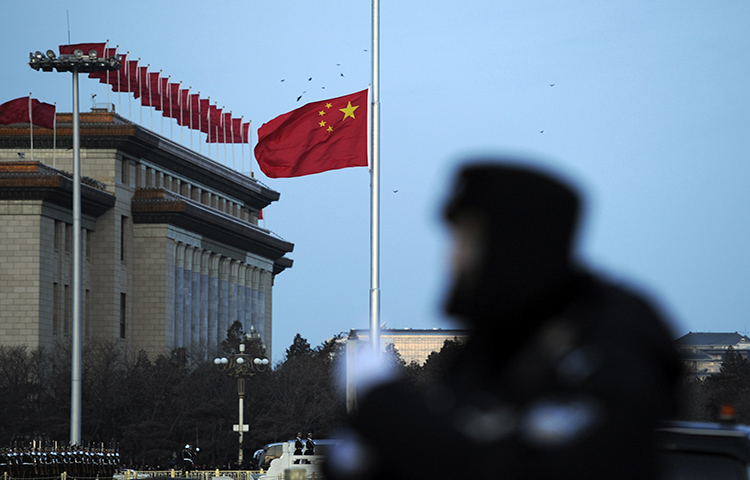Taipei, September 27, 2017–The Committee to Protect Journalists calls on Chinese authorities to immediately release journalist Ding Lingjie from state custody. Ding, an editor for the human rights news website Minsheng Guancha (Civil Rights & Livelihood Watch), disappeared from her relative’s apartment in city of Zibo in the eastern Shandong province on September 22, according to Radio Free Asia and Epoch Times.
The journalist was alone in the apartment that night, according to media reports. CPJ was unable to independently confirm the circumstances under which Ding disappeared or when she disappeared.
When Ding’s relative returned to the apartment on the evening of September 23, she was not there, and her computer, clothes, and other belongings were also missing, according to the Chinese human rights group Weiquanwan. According to media reports, Ding’s phone was offline when her relatives tried to call.
When Ding’s family called the local police station to report her missing, a police officer told the family that the Shijingshan branch of the Beijing municipal police detained the journalist, according to Xu Qin, an independent human rights researcher who started “Ding Lingjei Watch,” a microblog discussion group on WeChat to attract public awareness of Ding’s disappearance.
CPJ was unable to determine when Ding’s relatives called to report her missing or where Ding is currently located.
“Chinese authorities should immediately release Ding Lingjie, and allow her to continue her work as a journalist,” said Steven Butler, CPJ’s Asia program coordinator, from Washington D.C. “It is not acceptable for a journalist to be hidden away, incommunicado, let alone one who has not been publicly charged with any crime.”
When CPJ called the Zichuan police station in Zibo, the officer who picked up the phone immediately hung up once she heard CPJ’s name.
CPJ called the Beijing Municipal Public Security Bureau Shijingshan Branch for comment, and the police officer who picked up the call also hung up after learning the caller’s identity.
Chinese police have detained Ding several times in the past, according to a post on Ding’s personal blog, which is hosted on the website Fangminzhisheng (Petitioner’s Voice). In 2014, authorities charged the journalist with “picking quarrels and provoking trouble” after she wrote about how authorities handle people who petition government officials, according to a Radio Free Asia article. Authorities released Ding on bail after detaining her for 33 days, according to the same article. CPJ was unable to determine if the charges in this case were dropped.
The Chinese journalist Liu Feiyue founded Minsheng Guancha in 2006. The website states that it focuses on “the lives of the underclass,” and covers topics including political protests, detention of activists and writers, police abuse, and other human rights violations.
Authorities arrested Liu on November 16, 2016, and charged him with “subversion of state power” and “leaking state secrets,” CPJ documented. Liu remains in jail, according to CPJ’s prison census.
CPJ was unable to determine how long Ding has worked at Minsheng Guancha.
China has launched a broad crackdown on free expression in advance of the Communist Party congress scheduled for October 18, including most recently disruption of the encrypted messaging service WhatsApp, according to news reports. China is one of the world’s second worst world’s worst jailers of journalists, with 38 journalists in jail on December 1, 2016, according to CPJ research.
